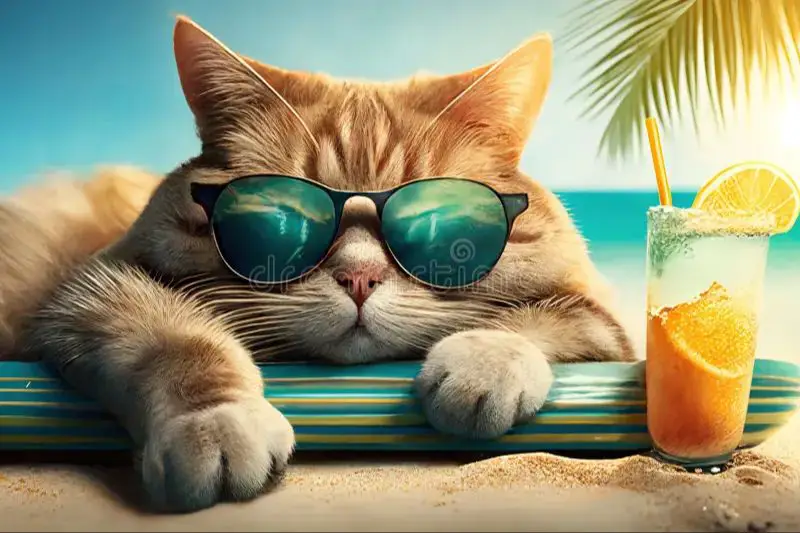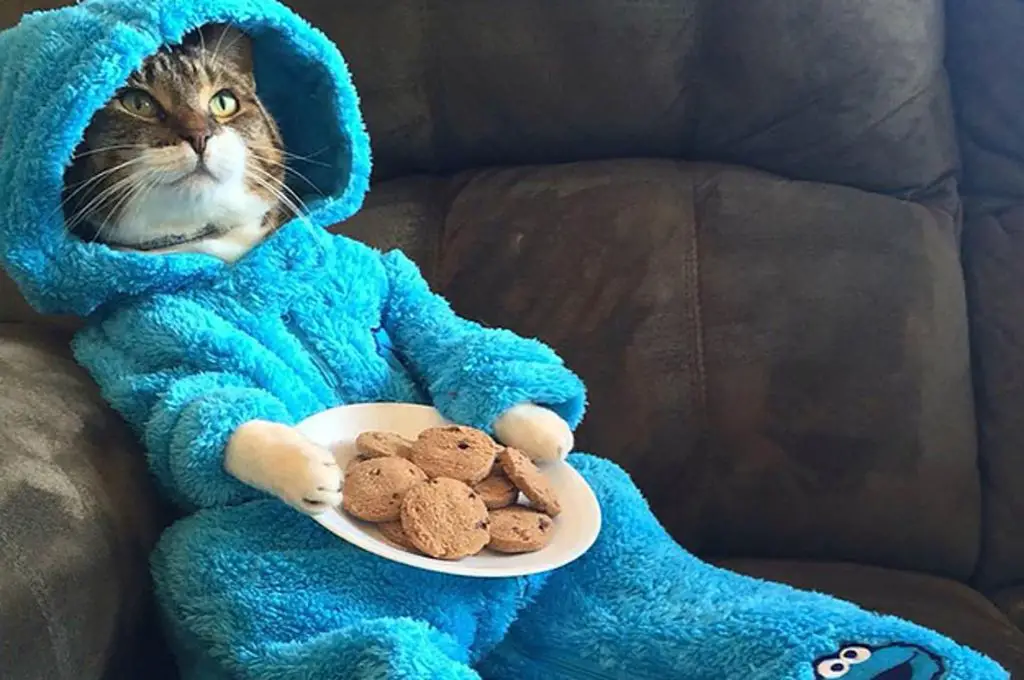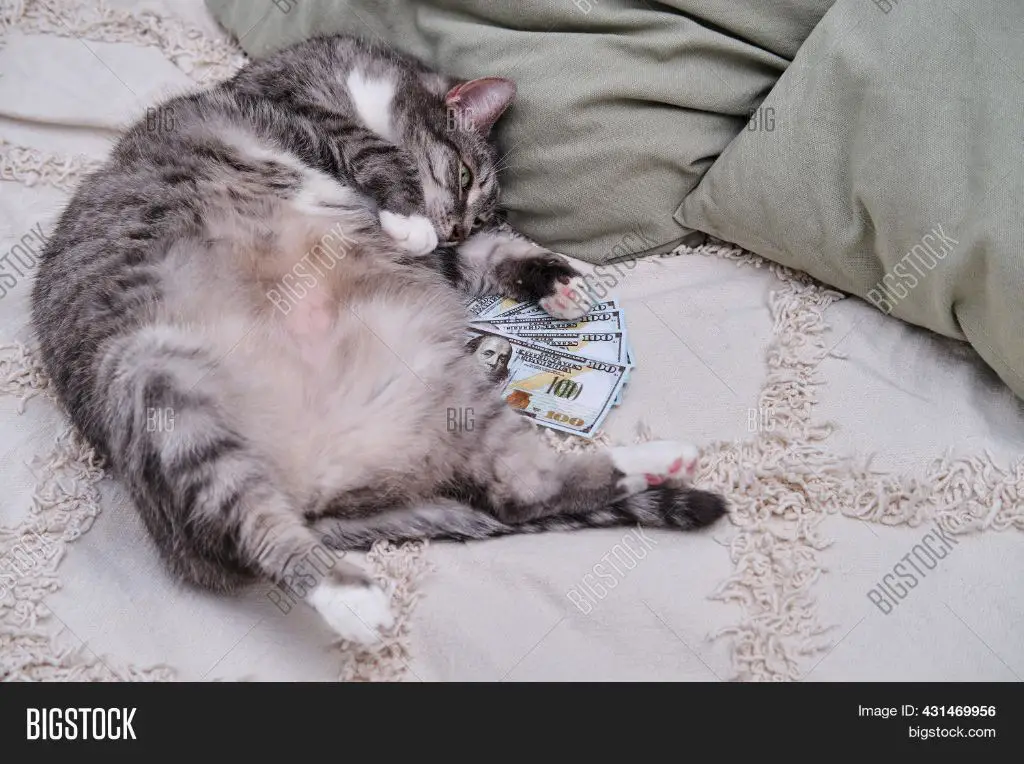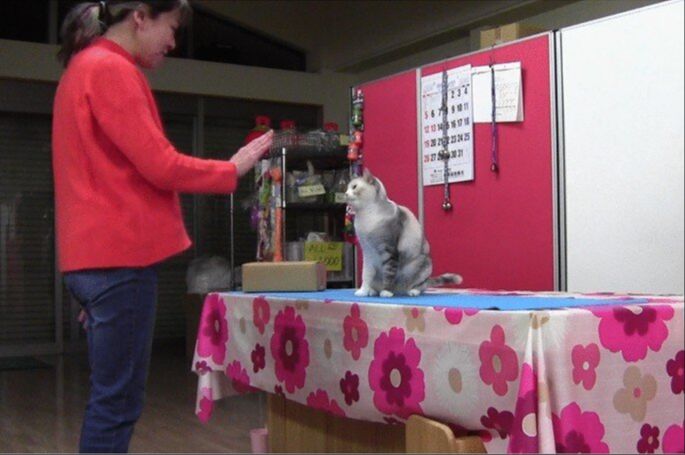Slang terms and phrases related to cats are commonly used in informal speech and writing, especially on the internet. They add color and humor when referring to our feline friends. Though cats are one of the most popular pet animals, they are mysterious creatures to us humans. As a result, we have created many anthropomorphic slang expressions about their behaviors, attitudes, and appearances.
Slang allows us to reference the unique characteristics of cats in creative ways. For example, using “cool cat” to describe someone smooth, suave, and laidback. Or saying someone is the “cat’s meow” to mean they are splendid or excellent. These terms draw comparisons between human traits and the perceived traits of cats.
This lighthearted cat slang gives us new ways to talk about cats and describe situations or people involving cat-like attributes. The phrases can inject fun into our conversations. Exploring the origins and meanings of popular cat slang provides a glimpse into our collective fascination with these beloved pets.
Cool Cat

“Cool cat” is a slang term meaning a relaxed, fashionable, and easygoing person. According to Dictionary.com, a cool cat is “a person who is easygoing, casual, and calm.” For example, “He was the most laid-back cool cat I ever met—he took everything in stride.” The term originated in the jazz era of the 1940s, referring to hip and stylish musicians and fans.
The Cambridge Dictionary defines a cool cat as “a fashionable person.” So in addition to being relaxed and casual, a cool cat has a sense of style and confidence in their appearance. They give off an effortlessly cool vibe through their clothes, hair, accessories, and overall attitude.
On Urban Dictionary, a cool cat is described as “a cool person. Someone who’s funny, cool and entertaining; a chill person.” So humor and being fun to be around are also associated with cool cats.
Cat’s Meow
The phrase “cat’s meow” originated in the 1920s in the United States as part of popular slang that used animal-related phrases to mean something excellent or spectacular. It was frequently used by the youth and Flapper subcultures of the time.
The exact origins are uncertain, but it emerged around the same time as similar feline phrases like “the cat’s pajamas.” The term “meow” refers to the sound a cat makes, so “cat’s meow” was a playful way to describe something or someone as highly impressive or remarkable.
According to sources like Quora and A-Z Animals, the phrase became popularized in the American Jazz Age and Roaring Twenties. It was a fun slang way to express approval or pleasure with something.
“Cat’s meow” is still sometimes used today to indicate that something or someone is excellent, impressive, or very enjoyable. It remains a charming relic of the past evoking images of the 1920s flapper era.
Cat’s Pajamas

The phrase “the cat’s pajamas” dates back to the 1920s and refers to something excellent or outstanding. While its exact origin is unclear, it became a popular saying during the Jazz Age. The “cat” in the phrase may refer to the hip jazz musicians of the time, who were known for their cool, stylish nature. Calling something “the cat’s pajamas” was a way to say it was the best of the best. For example, you might call a hot new jazz club or a talented musician “the cat’s pajamas.”
The phrase is often used today in a tongue-in-cheek or playful way to describe something really impressive or special. For example, “That new gadget is the cat’s pajamas!” or “Her baking skills are the cat’s pajamas.” While old-fashioned, it adds a dash of quirky charm to elevate whatever you’re describing as top-notch. The literal image of a cat wearing pajamas is silly, which adds to the saying’s humorous connotation. So if you want to highlight excellence with a retro twist, deeming something “the cat’s pajamas” communicates that it’s simply superb.
Fat Cat
Fat cat is a slang term that refers to a wealthy, privileged person who leads an extravagant lifestyle. The term originated in the early 20th century and was primarily used for wealthy political donors or influential people with money and power. The “fat” part alludes to their riches, while “cat” refers to a relaxed, carefree attitude.
Today, fat cat is often used to criticize people who are perceived as greedy, lazy, or self-interested, especially those in the upper class who are disconnected from everyday people. It can have a negative connotation, suggesting that a fat cat abuses their wealth and power without contributing much to society. Fat cats might indulge in lavish spending, live in luxury, or manipulate systems to preserve their own interests. The term evokes images of a well-fed housecat relaxing in comfort – except applied to privileged humans.
Fat cat may also be used in a mocking or light-hearted way between friends to tease someone who is living a little too large. Overall, the phrase fat cat captures a sense of excess wealth and leisure among the elite upper class. It’s a colorful bit of slang that has permeated popular culture and political rhetoric for over a century.
Cool as a Cat

The slang phrase “cool as a cat” refers to someone who is very composed, calm, and collected in a casual way. It first emerged in the 1930s as part of jazz culture to describe someone who was stylish, confident, and relaxed like a cat.
According to Dictionary.com, “cool as a cat” means “very relaxed and poised; unflustered.” For example, you might say, “He handled that stressful situation as cool as a cat.” It suggests an attitude of being laidback and unruffled even in tense circumstances.
Let the Cat Out of the Bag
The phrase “let the cat out of the bag” means to accidentally reveal a secret or disclose facts that were previously unknown. This idiom has an interesting origin dating back to the 1750s in England.
One story claims the saying originated from the dishonest practice of substituting high-quality piglets with cat carcasses when selling them in bags at markets. If the buyer opened the bag before the transaction was complete and saw it was a cat rather than a pig, the secret was “out of the bag”. [1]
Another theory suggests the idiom relates to the old naval punishment of flogging, where the “cat” refers to the whip used. Letting the cat out meant taking it out of the red bag where it was kept for floggings, signaling punishment was imminent. [2]
Whatever the exact origin, the phrase first appeared in print in the 1760s and referred to revealing something prematurely or unintentionally.
Cat Nap
A “cat nap” refers to a brief, light sleep, typically during the day (from Collins Dictionary). The term likely originated because cats are known to frequently take short naps throughout the day. A cat nap may last anywhere from 10 to 30 minutes. Cat naps are often taken to recharge and boost energy and alertness during the day without going into a deeper sleep cycle. They can be beneficial for improving mood, memory, reaction times, and fighting fatigue when a full night’s sleep wasn’t achieved. However, cat naps shouldn’t replace or disrupt nighttime sleep.
Some other key points about the term cat nap:
- A cat nap is shorter than a regular nap, which is usually 30-90 minutes.
- Taking a brief cat nap is different than sleeping for hours during the day, which can disrupt nighttime sleep patterns.
- The phrase likely became popular because cats tend to sleep in short bursts throughout the day.
- Cat naps are often planned in advance as part of a daily routine, rather than accidentally dozing off.
Copycat
The term “copycat” refers to someone who copies or imitates another person, often in a mocking or derogatory way. As defined by the Cambridge English Dictionary, a copycat is “someone who is influenced by someone else and does or says exactly the same as them.”

The origins of the term copycat date back to the late 1800s. It combines the word “copy” with “cat,” possibly due to cats being associated with stealthy stalking or mimicking behaviors. According to Urban Dictionary, a copycat is “an obnoxious individual who, sickly, gets off on copying, imitating, emulating, simulating or miming the words, gestures and expressions of another individual.”
In slang, copycat can be used as a noun (“He’s such a copycat!”) or a verb (“Stop copycatting me!”). It conveys the sense of unoriginality and lack of creativity in someone who merely copies others. The term often has a teasing, mocking, or disapproving tone.
Conclusion
In summary, cat slang terms have a long history in the English language. Terms like “cool cat”, “cat’s pajamas”, and “fat cat” are part of popular culture and everyday vernacular. These cat words and phrases often describe someone or something impressive, excellent, or fashionable. Other slang uses of “cat” refer to being stealthy, letting secrets out, taking naps, or copying someone. As we’ve seen, cats have inspired many creative idioms and catchy colloquialisms that add color and fun to our conversations. The versatility of cat slang is a testament to felines’ enduring hold on the human imagination. So next time you call someone a “cool cat” or say you’re “dog tired”, remember the playful linguistic legacy of our furry feline friends.

